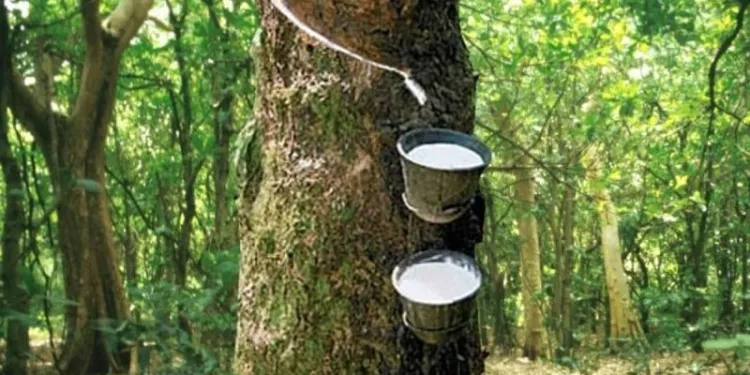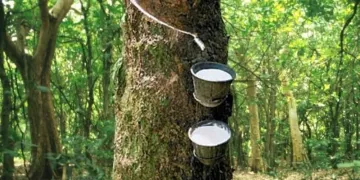The sharp fall in natural rubber prices, and the frequent breaches of slaughter-tapping contracts involving big amounts have added to the sorry state of affairs in the plantation sector of Kerala, which is the largest producer of rubber in the country.
Many contractors have backed out from their contracts, demanding relaxation of the norms of the binding contract, due to the fall in rubber prices — by `100 over the past 30 months.
The murder of a planter in Kanjirappally on Wednesday, following a dispute over a contract for slaughter-tapping of rubber trees, points to the grave socio-economic problems gripping the plantation sector.
“I have lost more than `5 lakh in the deal,” said Arun, a young man from Kottayam district who took 500 rubber trees on contract for slaughter- tapping in Kasargod district. When he entered into the two-year agreement, the price of natural Rubber was above `200 per kg.
He was lured by the upward trend in price, and signed the agreement for `10 lakh. However, he incurred a big loss due to the sharp fall in price, despite doing the tapping job himself. Normally, rubber trees are given for slaughter-tapping after a certain period of normal tapping. The contract amount for latex, normally for two-four years, starts at `1,500 per tree, and could go up to `8000, including the timber.
The lease amount depends on various factors, including the age and yield of the trees, the elevation of the land and vehicle accessibility.
The price fall has left a telling impact on planters in the districts of Kottayam, Idukki, Pathanamthitta, and Malappuram, which have the largest concentration of small rubber growers, apart from several big and medium sized plantations.
“The situation in the Malabar area is much worse than in the southern part. Here, the contracts are for lesser amounts as the rubber wood fetches lesser value as the main market is at Perumbavoor in Ernakulam district,” said KV Paulose, a native of Chungathara in Malappuram.
– newindianexpress.com


























